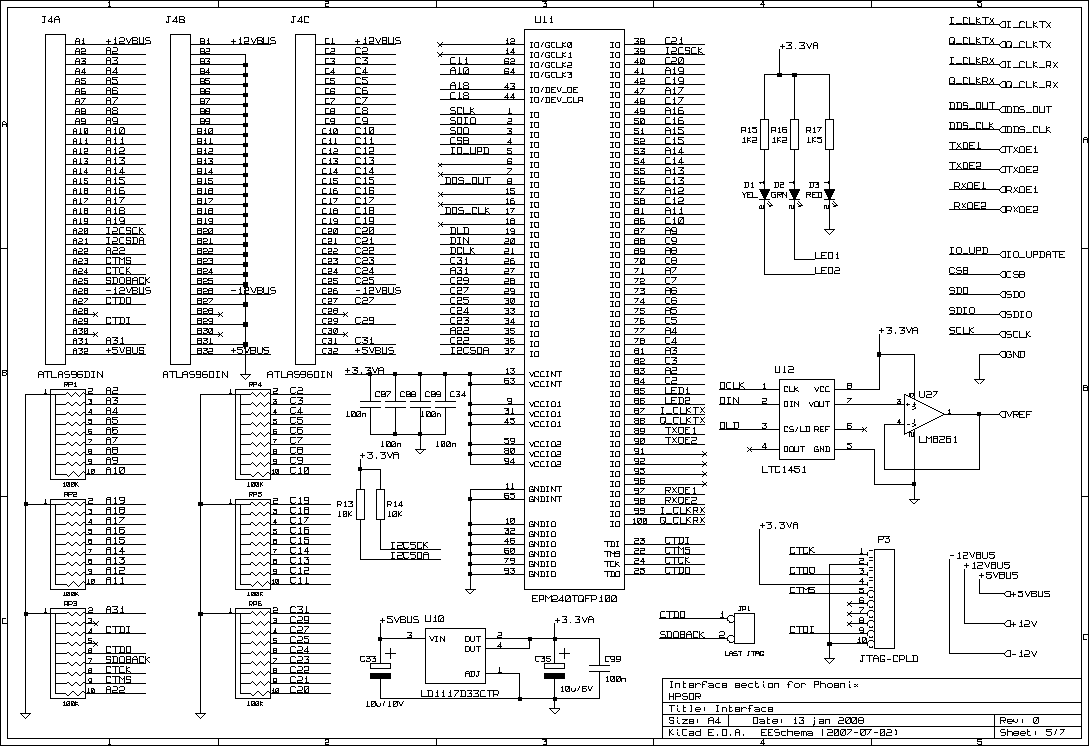Difference between revisions of "Phoenix Schematics"
(+cat) |
|||
| (2 intermediate revisions by one other user not shown) | |||
| Line 1: | Line 1: | ||
| − | + | The root sheet schematic for the [[PHOENIX|Phoenix]] board [[Image:Root_sheet.gif]] gives an idea of the overall layout. | |
| − | + | ||
| − | The root sheet schematic [[Image:Root_sheet.gif]] gives an idea of the overall layout. | + | |
| − | + | ||
| − | + | ||
'''Interface Circuit''' | '''Interface Circuit''' | ||
| Line 9: | Line 5: | ||
The interface Circuit uses a small CPLD as in the other HPSDR modules to map to the bus in a programmable way. It will also allow experimentation with various clock schemes. | The interface Circuit uses a small CPLD as in the other HPSDR modules to map to the bus in a programmable way. It will also allow experimentation with various clock schemes. | ||
| − | |||
| − | |||
'''DDS circuit''' | '''DDS circuit''' | ||
[[Image:DDS.gif]] | [[Image:DDS.gif]] | ||
The DDS circuit uses the latest device from Analog Devices - the AD9912. This has better SFDR and output freq range than previous devices. I have elected to use a PECL driver for the CPLD and a packaged LPF for convenience. | The DDS circuit uses the latest device from Analog Devices - the AD9912. This has better SFDR and output freq range than previous devices. I have elected to use a PECL driver for the CPLD and a packaged LPF for convenience. | ||
| − | |||
The DDS requires several regulators for best performance. [[Image:DDSpower.gif]] | The DDS requires several regulators for best performance. [[Image:DDSpower.gif]] | ||
| − | |||
| − | |||
'''Mixer/QSD'''[[Image:receiver.gif]] | '''Mixer/QSD'''[[Image:receiver.gif]] | ||
The Mixer/QSD is based on various comments and sources.It uses the devices proposed originally. | The Mixer/QSD is based on various comments and sources.It uses the devices proposed originally. | ||
The CPLD will be used to generate quadrature signals from the DDS. No preamp/filters have been included at this stage. | The CPLD will be used to generate quadrature signals from the DDS. No preamp/filters have been included at this stage. | ||
| − | |||
| − | |||
'''QSE''' [[Image:QSE.gif]] | '''QSE''' [[Image:QSE.gif]] | ||
The QSE circuit is basically the reverse of the receiver with a low level power amp | The QSE circuit is basically the reverse of the receiver with a low level power amp | ||
| − | |||
Note there is no DDS clock circuit at this point. This is still under development, though a simple crystal oscillator module will be used for prototypes. | Note there is no DDS clock circuit at this point. This is still under development, though a simple crystal oscillator module will be used for prototypes. | ||
| + | |||
| + | [[Category:Phoenix]] | ||
Latest revision as of 10:53, 25 January 2010
The root sheet schematic for the Phoenix board 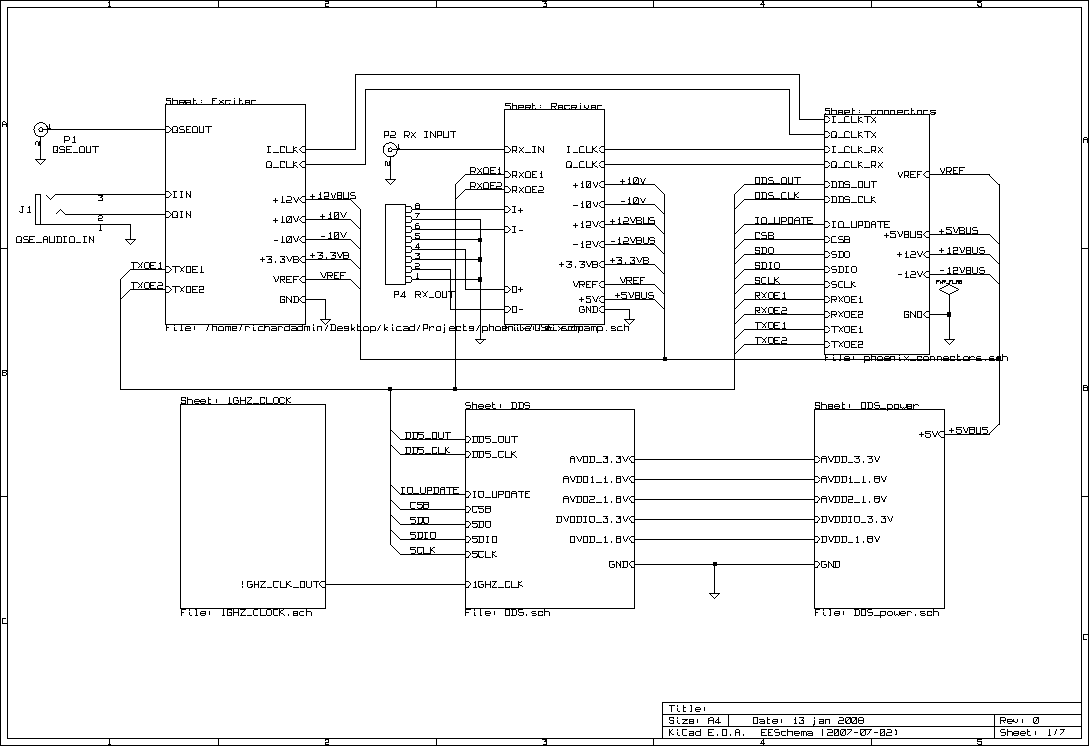 gives an idea of the overall layout.
gives an idea of the overall layout.
Interface Circuit
The interface Circuit uses a small CPLD as in the other HPSDR modules to map to the bus in a programmable way. It will also allow experimentation with various clock schemes.
DDS circuit
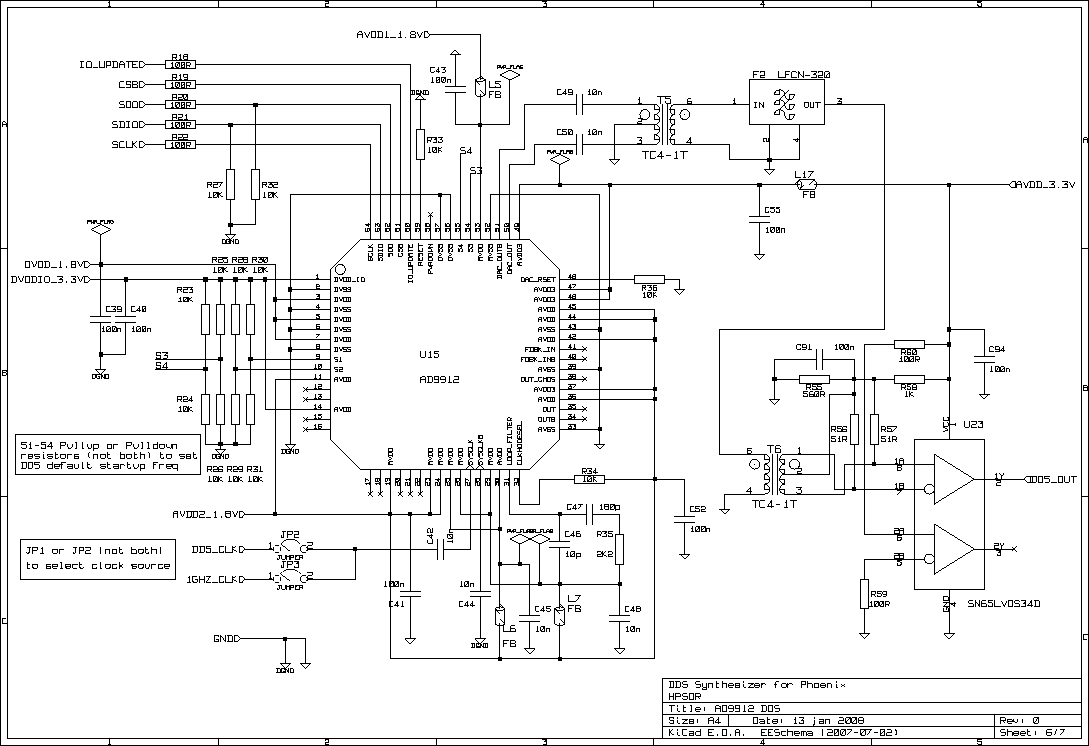 The DDS circuit uses the latest device from Analog Devices - the AD9912. This has better SFDR and output freq range than previous devices. I have elected to use a PECL driver for the CPLD and a packaged LPF for convenience.
The DDS circuit uses the latest device from Analog Devices - the AD9912. This has better SFDR and output freq range than previous devices. I have elected to use a PECL driver for the CPLD and a packaged LPF for convenience.
The DDS requires several regulators for best performance. 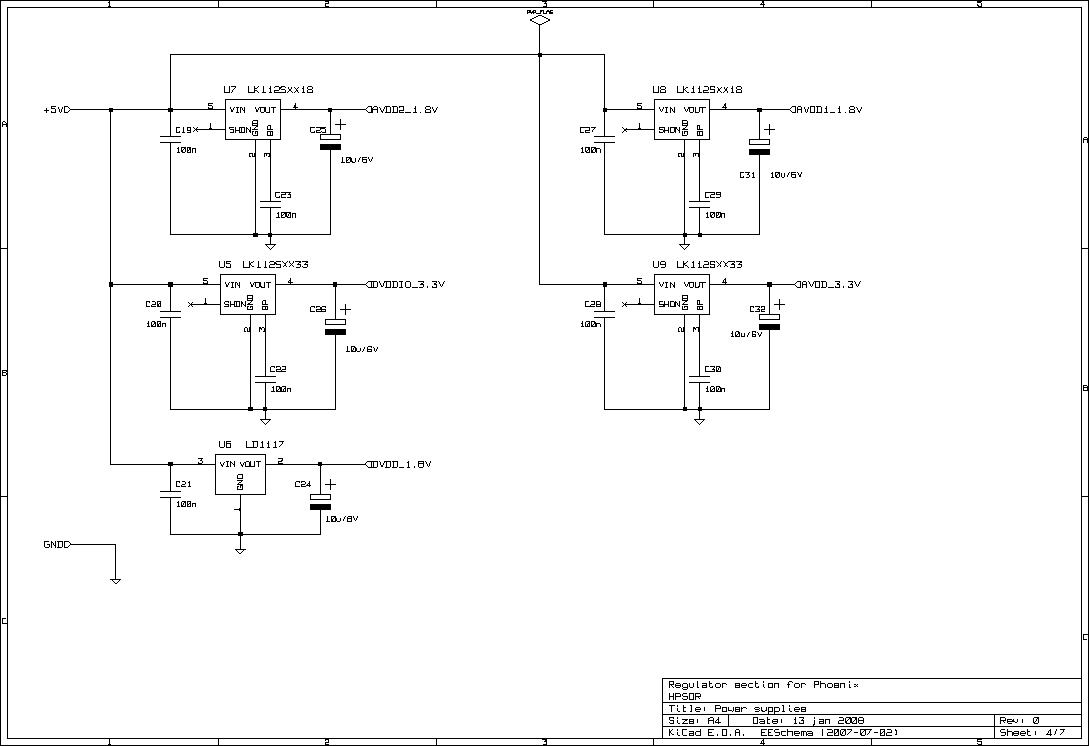
Mixer/QSD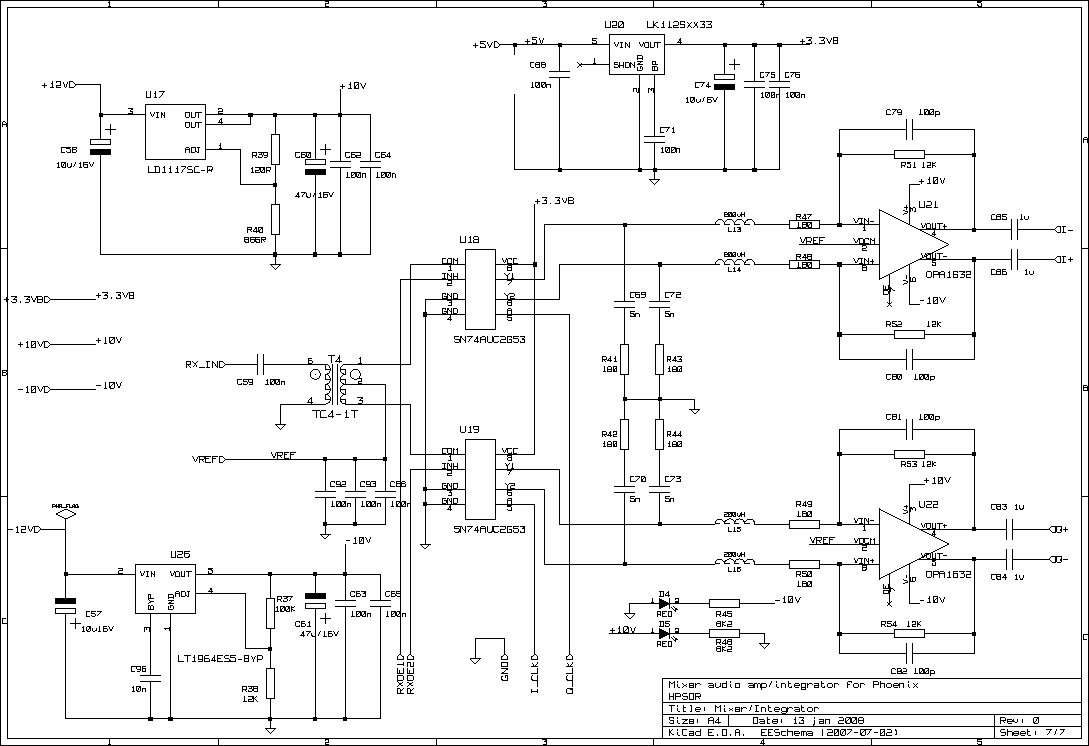 The Mixer/QSD is based on various comments and sources.It uses the devices proposed originally.
The CPLD will be used to generate quadrature signals from the DDS. No preamp/filters have been included at this stage.
The Mixer/QSD is based on various comments and sources.It uses the devices proposed originally.
The CPLD will be used to generate quadrature signals from the DDS. No preamp/filters have been included at this stage.
QSE 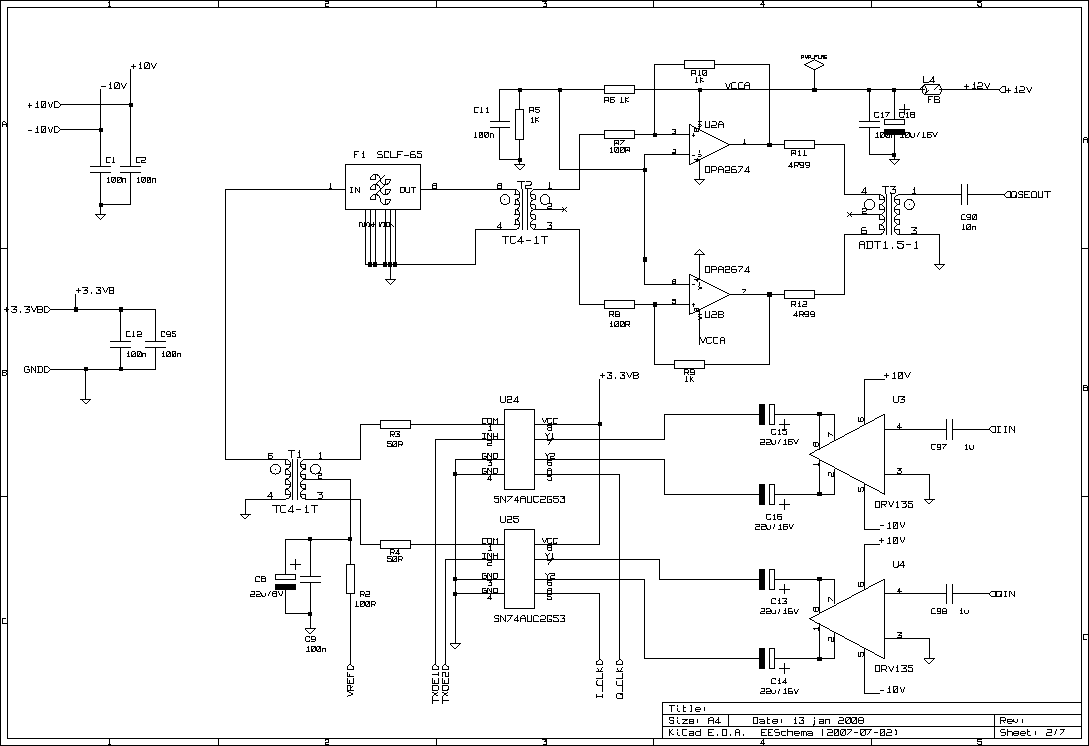 The QSE circuit is basically the reverse of the receiver with a low level power amp
The QSE circuit is basically the reverse of the receiver with a low level power amp
Note there is no DDS clock circuit at this point. This is still under development, though a simple crystal oscillator module will be used for prototypes.
